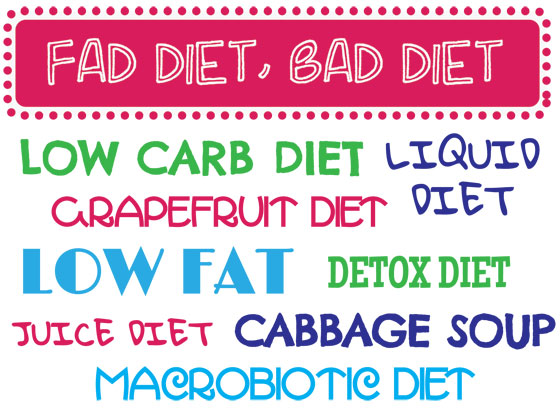How to spot a FAD diet

Image source https://blogger.googleusercontent.com/img/b/R29vZ2xl/AVvXsEj-NR6Lm1WZINLtwD_43ytyGRxNYCh47CBoSCX-9yFvWBAmCOEocQUEpnxXTf-i-Vd8moiZPLsVyOY4zbOtLUWJLbRs1fvVRQe-yPyNzMthoaEomxoSadOCW4Y2Yz18WiahJqTWWN9wWmw/s1600/FAdDiet-BAd-Diet.jpg How many diets do you know of? Off the top of my head I can easily think of a dozen. And I think we all know someone (if not yourself) who has pretty much tried them all, yet they are still battling with their weight and struggling with their diets. So, why are there so many diets, and why do none of them really work? We are bombarded with marketing campaigns, endorsed with some once 'fat' individual (or celeb) who lost 100lbs and are now living the life of their dreams! Well, if it worked for them, it must work for you too right? However, I think you know by now that basically all of these diets just dont deliver what they claim to. Why? because they are just not sustainable long-term. Yes, if you start a diet and cut calories, ...